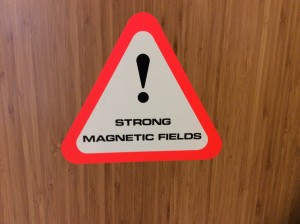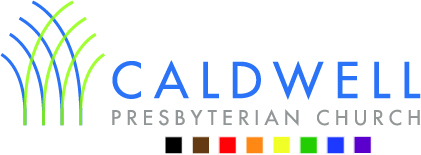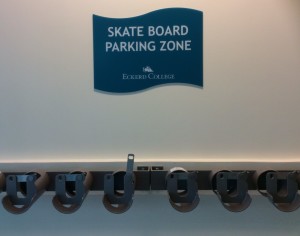Dear Caldwell,
As we travel from Sunday to Sunday this week, I feel a bit guilty down here in Florida while the snow is still melting there. (But YOU are there, soaking up the Super Bowl fever … and all I can do is watch a little ESPN.)
Wherever I am, whatever I’m doing, you and our church are not far from my mind. On the drive down, I listened to a TED Talk Radio Hour on the subject of the 7 Deadly Sins (quick – how many can you name?). It was good listening, but guess what? For the entire hour-long broadcast, not one religiously-affiliated person was quoted or interviewed … on the 7 Deadly Sins, for gosh sakes! (There was one segment on how a multi-, multi-millionaire is traveling around trying to wake his fellow ultra-rich up to the sin of vast economic inequality in the U.S.) The lack of any religious figure being included on a show about the relevance of the 7 deadly sins is just one more reminder of how the church has lost its voice on many of the most critical issues of the day.
The intensive course I am in here in St. Petersburg (through Pittsburgh Theological Seminary) asks us as pastoral leaders to stop and look deeply at the context of our ministry. In other words, the relevance of ministry where we are in the world (but, hopefully, not of it). For us, that’s Caldwell’s unique membership, mission, neighborhood and community. When we write sermons, we are often told to take the “text in context.” That means to look at the original scripture in the historical, critical context in which it was written. That’s important. So is this week’s emphasis on looking at the CONTEXT of our work.
As I touched on in last week’s blog, we are looking at the swiftly changing nature of urban ministry, shaped by migration and immigration, changes in employment and housing patterns, socio-economics and generational shifts in religious outlook (example: the Nones) and, importantly, the under-told story and experience of those populations that have historically been left out or sidelined in our country’s popular narrative. Think about it – given the changes in Charlotte and our neighborhood, what could be more relevant to us?
Today, we looked at how cities have evolved. Tomorrow and through the end of the week, we will widen the aperture to include how the church at large has included – or not – the changing face of America and all its citizens in its mission.
Our mission statement is clear about Caldwell’s intent to “welcome all”, though we are not perfect.. Hopefully you hear this addressed in various ways in your life at church – in meetings, gatherings, study, worship and so on. It is an ongoing conversation among us – never to be without the life and model of Christ and openness to the Holy Spirit.
 Our student cohort happens to be meeting in the science building at Eckerd College (formerly Florida Presbyterian College) and I couldn’t help but notice the two signs I include here. The one at the top reminds us that the world and society is ever-changing: who knew skateboarders had their own parking lot?
Our student cohort happens to be meeting in the science building at Eckerd College (formerly Florida Presbyterian College) and I couldn’t help but notice the two signs I include here. The one at the top reminds us that the world and society is ever-changing: who knew skateboarders had their own parking lot?
The other one about a “strong magnetic force” (I dared not go beyond that door) begs a question? Does Caldwell have a “strong magnetic force” to others, that we might share our faith journey with them? Surely, that “force” includes the authentic warmth and joy that newcomers always tell me is palpable at Caldwell. Otherwise, it has proven to be our effort to pursue our ambitious, aspirational mission statement – to be the hands and feet of Christ in the world together across many differences, gifts and life experiences.
As we are discussing in class this week, that is an ongoing, ever-evolving charge that calls us to take risk for the sake of the gospel – always informed by both the text (scripture) AND a congregation’s particular context.
What do you think? Let me know at pastor@caldwellpresby.org.
I’ll stay in touch from here. May the Lord be with you there.
In Christ,
John
St. Petersburg, FL

